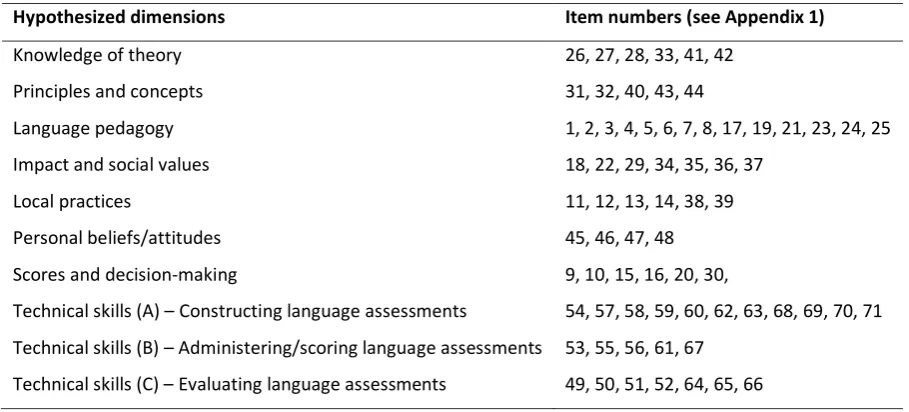Towards a comprehensive, empirical model of language assessment literacy across stakeholder groups:Developing the Language Assessment Literacy Survey
Full text
Figure
![Figure 1: LAL profiles of four stakeholder groups (a=test writers [e.g., test developers], b=classroom teachers, c=university administrators, d=professional language testers [researchers]) (Taylor, 2013, p](https://thumb-us.123doks.com/thumbv2/123dok_us/9303759.431242/5.595.81.519.79.390/stakeholder-developers-classroom-teachers-university-administrators-professional-researchers.webp)



Related documents
Gate superficial, and it seems Brummer is too quick to interpret Gate as simply another example of how Japanese society is being ‘militarized’ through its
A preliminary age, stage and grade-adjusted logistic re- gression model found a 4-way gender by marital status by health insurance adequacy by poverty (lived in a high
Labor Economics 15(1), 54-67. Life Chances: Supporting people to get on in the labor Market , Analytical discussion paper, UK Cabinet Office. Covariate selection and propensity
In this work, NUCKS expression on both RNA and protein levels was studied in breast tissue biopsies consisted of invasive carcinomas, intraductal proliferative lesions,
External factors leading to 30- days readmission rate for heart failure patients include: (i) patients’ factor, such as non-compliant to fluid restriction and poor
The student Alcohol and Other Drug Policy is distributed upon enrollment and annually via email in the Academic Catalog and is available to staff, students, and the general public
Many students, while aware of the steps in Kotter’s change management theory, were unable to link them to ethical and socially responsible management.. Any of the eight steps
The capacity building themes from these survey respondents indicated achievement in mandates of both the 12-Teams capacity building committee and the trainee-led work- ing group



